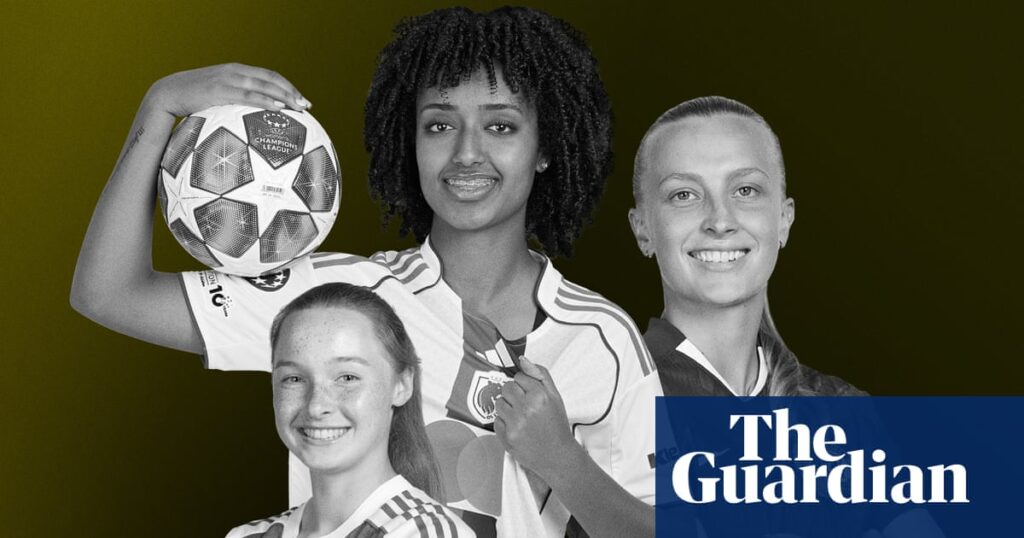What has changed?
Four years after the introduction of a group stage to bring the Women’s Champions League in line with the men’s competition, change is afoot again with a new 18-team league phase replacing the 16-team group stage. In the new league phase, each team will play six matches against six different opponents with three at home and three away. Only the top four teams in the league will automatically reach the quarter-finals, with fifth to 12th competing in playoffs for the remaining four places.
Is it a good idea?
Time will tell. Change coming only four years after the successful introduction of a group stage feels a bit premature but we may think differently if this new league phase proves to be entertaining. An additional two teams is also very welcome as expansion has been needed to accommodate the progression of women’s football across Europe. A league phase also leaves wriggle room for further expansion. Change is always uncomfortable initially and we’ll know at the end of the season whether that discomfort and initial confusion, as fans get to grips with the new setup, was worth it.
The broadcast deal with Disney+ is certainly an uplift on Dazn’s somewhat chaotic offering, as it first committed to putting the tournament behind a paywall before backing away when it realised it was unworkable. Disney+ has greater reach, is more accessible and comes alongside some free-to-air rights which are sorely needed if the UWCL is to grow its profile.
Who are the favourites?
The destination of Europe’s most illustrious trophy has never been more uncertain. The reigning champions, Arsenal, are floundering a little after an impressive start to life under their manager, Renée Slegers, with the Gunners having dropped seven points in the past three games in the Women’s Super League. They have European knowhow and showed their grit last season but an opening game against OL Lyonnes offers a stern early test of their resolve.
The runners-up Barcelona will always be a hot favourite for the competition they have won three times in the past five years. Despite a thin squad they have won their first league games, scoring 31 goals in the process, but their resolve will be tested in the Champions League with little rotation options available to the head coach, Pere Romeu.
Wolfsburg and Bayern Munich are neck and neck at the top of the Frauen-Bundesliga with both undefeated (won four, drawn one), but it is 10 years since a German side tasted European success – Eintracht Frankfurt in 2015. The eight-time champions OL Lyonnes have four wins from four games and sit top of the Première Ligue and have a chance to make a statement when they play Arsenal at Borehamwood on Tuesday night.
Chelsea may still be haunted by the 8-2 aggregate defeat by Barcelona in the semi-finals last season but they are desperate to win the Champions League. They have started the season in a winning fashion but domestic performances haven’t been overly convincing.
What about Manchester United?
Marc Skinner’s side got through qualifying and venture into the competition proper for the first time. Draws against Chelsea and Arsenal in the league demonstrated what they are capable of this season, with a solid defence critical to their good start. But their first time competing on four fronts will test squad depth. Millie Turner’s absence until at least Christmas is a blow and there is a feeling one or two key injuries could derail them. Investment is needed if they are to continue to develop and push on in Europe in the medium to long term. The Norwegian side Vålerenga are up first, then Atlético Madrid, Paris Saint‑Germain, Wolfsburg, OL Lyonnes and Juventus. That is a tough introduction.
after newsletter promotion
Who is set for a breakout season?
The Chelsea forward Aggie Beever‑Jones has been trusted to lead the line domestically despite the team’s extensive forward options. Four goals in five games is Chelsea’s reward for their trust in the academy graduate. Should Beever-Jones get minutes in Europe this season? Absolutely. Will she thrive? Almost definitely.
Elsewhere, the 18-year-old Lily Yohannes has joined OL Lyonnes from Ajax with expectations high. USA has won the battle for her international allegiance and she scored on her debut for OL Lyonnes and if she gets time in a stacked squad she is likely to impress.
Katie Reid has been chosen ahead of several other more experienced centre‑backs for Arsenal following Leah Williamson’s injury and her height, reading of the game and physicality have impressed. The Gunners may not feel she’s ready for European action but she’s earned a chance with her performances in the WSL.
Where and when is the final?
The Champions League final is taking place in Oslo at the home of the Norwegian national team, the Ullevaal Stadion, on the 22, 23 or 24 May 2026. The stadium has a capacity of 27,182 and beat off competition from Stuttgart’s MHPArena and Glasgow’s Hampden Park for the right to host the final.

